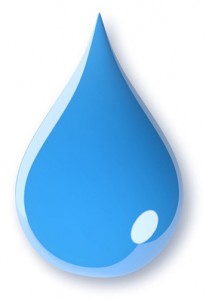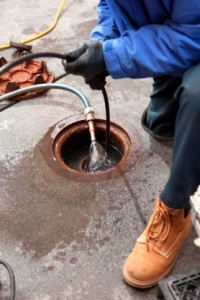Is Hard Water Affecting Your Drains?
October 1, 2013 Water that contains an excess of minerals (generally calcium and magnesium) is referred to as “hard water”, and occurs when (naturally soft) rainwater dissolves limestone and chalk from the ground as it forms streams and rivers. Many of the effects of hard water have long been known, such as its metal corrosion capabilities, but it is as yet unclear as to whether it has a negative impact on human health. Indeed, in many places around the world it’s used as a supplement for those lacking in calcium and magnesium, and is prevalent in the majority of urban areas.
Water that contains an excess of minerals (generally calcium and magnesium) is referred to as “hard water”, and occurs when (naturally soft) rainwater dissolves limestone and chalk from the ground as it forms streams and rivers. Many of the effects of hard water have long been known, such as its metal corrosion capabilities, but it is as yet unclear as to whether it has a negative impact on human health. Indeed, in many places around the world it’s used as a supplement for those lacking in calcium and magnesium, and is prevalent in the majority of urban areas.
Where It Takes Place

The real harm done by hard water, however, takes place in the drains, pipes, toilets, washing machines and dishwashers of homes in hard water areas. Due to the 2+ ions contained in hard water, any soap-based products coming into contact with it will solidify, creating soap scum instead of causing it to lather. This can cause a host of problems, not least a build-up of soap residue in pipes that can create blockages and damage to the interior.
What Exactly Is Hard Water?
Hard water is the cause of the film of dirt often found on bathroom taps, sinks, shower screens and more – particularly when bathing using soap products, as this creates excess soap scum residue. Dishes and cutlery that are washed in hard water can often appear spotted, while cleaning clothes in it can cause fabrics to become stiff and scratchy. Many washing powders and detergents contain elements to combat the negative effects of hard water on clothes and washing machines, but other dangers are present in the mineral-rich water.
Any Other Perpetrators?
Limescale is another major issue – one that can be particularly damaging to pipework and appliances. Due to the high calcium content of hard water, deposits of chalky calcium carbonate is often left over after evaporation as a by-product in kettles, central heating systems, drains and pipes, often causing blockages and other internal damage.
The best method of prevention for limescale is to avoid the use of hard water where possible in appliances. Obviously this might not be an option available to those living in exclusively hard water areas, so a regular descaling of kettles, boilers and central heating systems, washing machines and dishwashers is the most appropriate course of action.
What’s The Solution?
 Domestic water softeners exist for those suffering from severe limescale issues, but when problems caused by hard water cause damage outside of your control, it’s time to contact drain cleaning experts, such as the team at Express Drainage Solutions. We provide thorough and detailed CCTV surveys of all domestic drains to determine the cause of blockages or damage, identifying any limescale or soap scum build-up before carrying out extensive drain cleaning. We use high pressure water jetting to clear all blockages, and can even provide first rate repair and relining of any drains that have incurred more permanent damage.
Domestic water softeners exist for those suffering from severe limescale issues, but when problems caused by hard water cause damage outside of your control, it’s time to contact drain cleaning experts, such as the team at Express Drainage Solutions. We provide thorough and detailed CCTV surveys of all domestic drains to determine the cause of blockages or damage, identifying any limescale or soap scum build-up before carrying out extensive drain cleaning. We use high pressure water jetting to clear all blockages, and can even provide first rate repair and relining of any drains that have incurred more permanent damage.
—
For more information, or to request a free quote, don’t hesitate to get in touch with the team at Express Drainage Solutions today.
This entry was posted in Drainage. Bookmark the permalink. ← The 10 Strangest Things Found Lurking In Sewers & Drains Electro Mechanical Drain Cleaning: Another Solution for Blocked Drains →